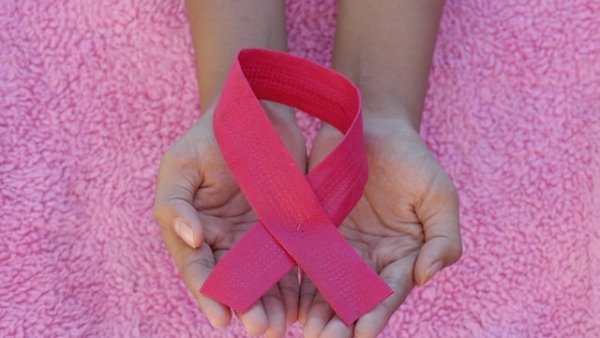Just In
- 35 min ago

- 3 hrs ago

- 5 hrs ago

- 7 hrs ago

Don't Miss
- Movies
 Varshangalkku Shesham Box Office Collection: Vineeth Sreenivasan's Film Shines; Makes Over Rs 50 Crore
Varshangalkku Shesham Box Office Collection: Vineeth Sreenivasan's Film Shines; Makes Over Rs 50 Crore - Finance
 1:6 Split: Metal Giant Vedanta Shares Hit New 52-Week High On Big Announcement; Splitting Up By Dec-2024
1:6 Split: Metal Giant Vedanta Shares Hit New 52-Week High On Big Announcement; Splitting Up By Dec-2024 - Education
 IIT Madras Introduces International master's course on Water Security and Global Change
IIT Madras Introduces International master's course on Water Security and Global Change - Technology
 Realme C65 Reportedly Launching Soon in India - Check Expected Price & Specs
Realme C65 Reportedly Launching Soon in India - Check Expected Price & Specs - News
 ED Attaches Actress Shilpa Shetty's Juhu Flat, Raj Kundra's Properties In Money Laundering Case
ED Attaches Actress Shilpa Shetty's Juhu Flat, Raj Kundra's Properties In Money Laundering Case - Sports
 Why is Dhanashree Verma not attending IPL 2024 matches of husband Yuzvendra Chahal?
Why is Dhanashree Verma not attending IPL 2024 matches of husband Yuzvendra Chahal? - Automobiles
 Kerala Spearheads Revival of Iconic Double-Decker Trains in India
Kerala Spearheads Revival of Iconic Double-Decker Trains in India - Travel
 From Coconut Breaking on Head to Men Dressing as Women: 12 Unique Indian Rituals Explored
From Coconut Breaking on Head to Men Dressing as Women: 12 Unique Indian Rituals Explored
World Cancer Day 2022: What Is Tongue Cancer? Know More About Its Causes, Symptoms And Treatment
World Cancer Day is observed every year on 4 February to raise awareness of this chronic condition and encourage its early detection, prevention and treatment.

Tongue cancer is one of the types of head and neck cancer that begins in the tongue cells. According to a study, tongue cancer constitutes around 36.5 per cent of all oral cavity malignancies. [1]
The cancer is highly prevalent in males compared to females by a ratio of 1.7:1 and the mean age for the development of cancer is around 30.5 years.
In this article, we will discuss details on tongue cancer. Take a look.
Types Of Tongue Cancer
The tongue, along with the floor of the mouth and the lips, is one of the common subsites within the oral cavity. As the anterior two-thirds of the tongue is inside the oral cavity, the posterior or base of the tongue is considered a part of the oropharynx or the throat. [2]
This is why, when cancer in tongue cells occurs in the base or say from where the throat starts, it is considered to be a different cancer type in terms of prognosis and treatment.
Tongue cancer in the anterior parts of the tongue is called oral tongue cancer while at the posterior is called oropharyngeal cancer.
Tongue cancer has many stages and grades which represent how far and in what body areas cancer has spread. According to the American Joint Committee on Cancer, the TNM system is used to represent staging cancer of the head and neck, where T tells about the size of the tumour, N says whether cancer has spread to lymph nodes and M says whether the cancer is metastases or have a tendency to spread to nearby body areas. [3]

Causes And Risk Factors For Tongue Cancer
Tongue cancer is mainly caused due to environmental factors like chronic smoking habits and alcoholism.
Tobacco, used in the making of cigarettes, contain carcinogens or cancer-causing substances like polycyclic hydrocarbons and nitrosamines. On the other hand, when alcohol is consumed, it gets metabolised into acetaldehyde in the body that may cause alternations in the DNA. [4]
In some studies, Human papillomavirus (HPV) infection is also the main cause of tongue cancer, especially at the base of the tongue. [5]
Some of the other causes for the development of tongue cancer may include:
- Radiation exposure.
- Chronic chewing of betel leaves, which is common in Asia.
- Poor oral hygiene
- Immune-suppression conditions.
People with any form of oral or oropharyngeal cancer are at increased risk of tongue cancer.
Symptoms Of Tongue Cancer
Some of the common symptoms of tongue cancer may include:
- Lesions in the tongue.
- Weight-loss [6]
- Dysarthria (motor speech disorder).
- Odynophagia (painful swallowing).
- Persisting ulcer in the tongue.
- Numbness in the mouth
- Bleeding from the tongue without any cause.
- Sore throat.
Complications Of Tongue Cancer
Tongue cancer, if left untreated for longer can cause complications such as: [7]
- Speech problems, if cancer spreads to the base of the mouth.
- Excessive salivation
- Orocutaneous fistula
- Infection in the mouth.
- Tooth decay.
- Stiffness in the jaws.
- Burning sensation in the mouth.
- Trauma
- Nutritional deficiencies.
Diagnosis Of Tongue Cancer
Tongue cancer is often consumed with other conditions such as carcinoma in situ, leukoplakia, papilloma, lingual thyroid and dermoid cyst.
To diagnose tongue cancer, a medical expert may ask for personal habits like tobacco smoking or alcohol usage, along with a history of cancer in the family.
Some of the methods to diagnose tongue cancer may include:
- Positron emission tomography scans: It indicates a growing tumour in tongue cells.
- X-rays: To get a detailed view of the mouth and throat.
- Biopsy: To detect cancerous tissues.

Treatments Of Tongue Cancer
Some of the treatment methods for tongue cancer may include: [8]
- Chemotherapy: Using powerful drugs to kill cancerous cells.
- Radiotherapy: Using high radiation to kill cancer cells.
- Surgery: Removing the cancerous cells by surgically removing the affected area.
- Combinational therapy: It includes a combination of any or all of the aforementioned therapies.
To Conclude
Tongue cancer is life-threatening but is a highly curable type of cancer if detected at an early stage. If you have a habit of smoking, alcohol consumption or chewing betel leaves (paan) and have some of the aforementioned symptoms, consult a medical expert soon for proper diagnosis and treatment.
-
 healthWorld Cancer Day 2024: 5 Simple Daily Habits To Reduce The Risk Of Developing Cancer
healthWorld Cancer Day 2024: 5 Simple Daily Habits To Reduce The Risk Of Developing Cancer -
 healthWorld Cancer Day 2024: Messages, Greetings, Wishes, Texts, Images, FB And WhatsApp Status
healthWorld Cancer Day 2024: Messages, Greetings, Wishes, Texts, Images, FB And WhatsApp Status -
 healthWorld Cancer Day 2024: Exploring Anti-Cancer Properties Of Indian Herbs And Spices Which Are Natural Healers
healthWorld Cancer Day 2024: Exploring Anti-Cancer Properties Of Indian Herbs And Spices Which Are Natural Healers -
 healthWorld Cancer Day 2024: Myths vs Facts, Is Your Microwave Giving You Cancer?
healthWorld Cancer Day 2024: Myths vs Facts, Is Your Microwave Giving You Cancer? -
 healthWorld Cancer Day 2023: Pedalling for a Cancer-Free World
healthWorld Cancer Day 2023: Pedalling for a Cancer-Free World -
 wellnessCancer Se Ladai: Josh App And MASH Project Foundation's Cancer Awareness Campaign With Lung Care Foundation
wellnessCancer Se Ladai: Josh App And MASH Project Foundation's Cancer Awareness Campaign With Lung Care Foundation -
 disorders cureExpert Article: Holistic Cancer Care - Awareness About Ayurvedic Treatment And Management Of Cancer
disorders cureExpert Article: Holistic Cancer Care - Awareness About Ayurvedic Treatment And Management Of Cancer -
 healthWorld Cancer Day 2022: Decline In Cancer Screening Due To COVID-19 Fear
healthWorld Cancer Day 2022: Decline In Cancer Screening Due To COVID-19 Fear -
 disorders cureWorld Cancer Day: COVID-19 And Breast Cancer
disorders cureWorld Cancer Day: COVID-19 And Breast Cancer -
 disorders cureWorld Cancer Day 2022: 10 Dangerous Habits That May Cause Cancer
disorders cureWorld Cancer Day 2022: 10 Dangerous Habits That May Cause Cancer -
 nutritionWorld Cancer Day 2022: Best Foods For Liver Cancer
nutritionWorld Cancer Day 2022: Best Foods For Liver Cancer -
 wellnessWorld Cancer Day 2021: 10 Jobs That Increase Your Risk Of Cancer
wellnessWorld Cancer Day 2021: 10 Jobs That Increase Your Risk Of Cancer


 Click it and Unblock the Notifications
Click it and Unblock the Notifications



